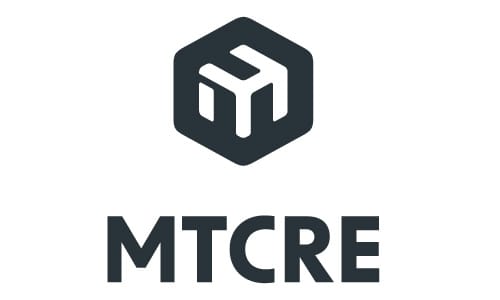Introduction to the MTCRE

What is MTCRE Certification?
MTCRE stands for MikroTik Certified Routing Engineer.
It is an official mid-level certification offered by MikroTik, a company that builds networking equipment and develops RouterOS (their powerful network operating system).
- Focus: The certification specifically targets routing. It goes beyond the basics covered in MTCNA (MikroTik Certified Network Associate) and dives deeper into:
- Static routing
- Policy routing
- OSPF (Open Shortest Path First) dynamic routing
- Tunneling protocols (IPIP, GRE, EoIP)
- Network design best practices
- Format:
- A theory exam (multiple choice, true/false, practical-oriented questions).
- A practical exam (hands-on labs with routing and tunneling).
- Prerequisite: You must first hold MTCNA before attempting MTCRE.
Why Get MTCRE?
Here are the main reasons why professionals pursue this certification:
1. Career Advancement
- Proves your ability to design and manage routed networks using MikroTik.
- Adds credibility on your CV if you work as a Network Engineer, ISP Engineer, or System Administrator.
- Opens doors to more advanced certifications (like MTCINE, the expert-level routing certificate).
2. Deep Technical Knowledge
- Builds a strong foundation in routing protocols, which are vendor-neutral skills.
- Helps you understand not just how to configure, but also why routing works the way it does.
- Essential for anyone working in ISP networks, enterprise WANs, or multi-branch organizations.
3. Practical, Hands-On Skills
- Unlike purely theoretical certifications, MikroTik certifications are lab-heavy.
- You’ll configure real routing scenarios, troubleshoot tunnels, and design resilient topologies.
- The skills transfer to real-world problem-solving with MikroTik and even other vendors.
4. Cost-Effective
- MikroTik is widely used in ISPs, WISPs, and SMBs because of its low cost and high flexibility.
- Having MTCRE makes you valuable in markets where MikroTik is the primary networking platform.
5. Path to Expert Certifications
- MTCRE is required before taking MTCINE (MikroTik Certified Internetworking Engineer), which covers BGP, MPLS, and advanced OSPF.
- It is a stepping stone if you want to specialize in service provider-level networking.
Summary
- MTCRE = MikroTik Certified Routing Engineer
- It is a mid-level routing certification focused on static routing, policy routing, OSPF, and tunneling.
- Why get it?
- Career growth and credibility
- Strong routing knowledge
- Hands-on, practical skills
- Valuable in ISP/enterprise networking
- Gateway to advanced MikroTik certifications
MTCRE Questions
1. What is the MTCRE certification?
The MTCRE (MikroTik Certified Routing Engineer) is a mid-level MikroTik certification that focuses on routing. It builds upon the fundamentals from MTCNA and covers static routing, policy routing, OSPF, tunneling, and basic network design.
2. What is the prerequisite for MTCRE?
To take the MTCRE exam, you must first hold the MTCNA (MikroTik Certified Network Associate) certification. MTCNA ensures you understand the basics of RouterOS, IP addressing, and simple routing.
3. What topics are covered in MTCRE?
The main topics include:
- Static routes (including recursive routes and blackhole routes)
- Policy-based routing (routing rules)
- OSPF (single and multi-area, redistribution)
- Tunnels (IPIP, GRE, EoIP)
- Point-to-point addressing (/30, /31 usage)
- Network design principles and best practices
4. What is the format of the MTCRE exam?
The exam usually has two parts:
- Theory exam: Multiple-choice and true/false questions.
- Practical exam: Lab scenarios where you must configure routing, OSPF, and tunnels on MikroTik routers.
5. How does MTCRE differ from MTCNA?
- MTCNA: Focuses on general networking basics, MikroTik RouterOS fundamentals, firewall, NAT, and simple routing.
- MTCRE: Specializes in routing with deeper coverage of OSPF, tunnels, and routing design.
6. How long is the MTCRE certification valid?
MikroTik certifications, including MTCRE, are valid for three years. After that, you must retake the course and exam to renew.
7. Who should take the MTCRE?
The certification is aimed at:
- Network engineers working in ISPs or enterprise WAN environments.
- System administrators managing routed networks.
- Professionals aiming to advance towards MTCINE or higher MikroTik certifications.
8. What lab skills are tested in MTCRE?
Lab tasks include:
- Configuring static and default routes.
- Implementing policy-based routing with routing rules.
- Setting up OSPF in single and multi-area designs.
- Creating and testing IPIP, GRE, or EoIP tunnels.
- Troubleshooting misconfigured routes or OSPF adjacencies.
9. Why is MTCRE valuable for a career?
- It proves strong knowledge of routing concepts.
- Demonstrates hands-on MikroTik configuration skills.
- Increases employability in ISPs, wireless ISPs, and SMBs.
- Acts as a prerequisite for advanced certifications like MTCINE.
10. How does MTCRE compare to vendor-neutral routing knowledge?
Although MTCRE is MikroTik-specific, the concepts (static routing, OSPF, tunneling) are vendor-neutral. The knowledge can be applied to Cisco, Juniper, and other platforms, making it a good stepping stone into general routing expertise.
